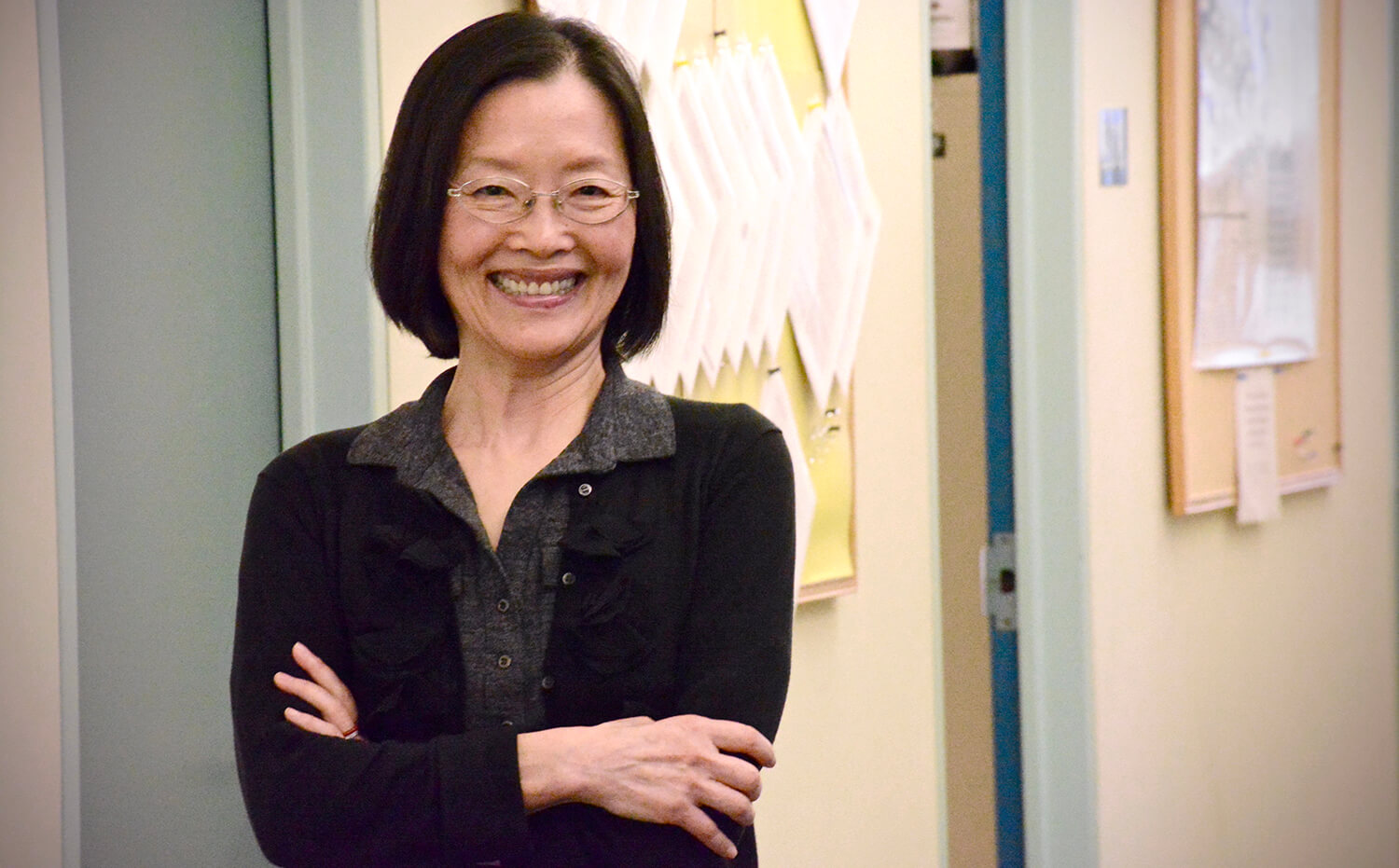
Every year, one-third of the world’s food is wasted — this is to say, 1.3 billion tons of food produced for human consumption never reaches human mouths. When the United Nations released these figures in 2013, Dr. Zhengxia Dou, Professor of Agricultural Systems, heard a new professional calling. The longtime soil scientist refocused her research to explore complexities of food waste and sustainable solutions.
“Food waste is an economic and environmental issue. It’s also a moral issue to have so much waste polluting the environment when millions of people around the world are food insecure,” she said.
For Dou, who was raised in a small village in China, food waste is also personal. “I grew up hungry for at least the first 15 years of my life,” she said. “We worked very hard to have nutritious food, but there never was enough.”
Today, she studies how food is grown and used, and how its waste is stewarded responsibly and effectively. Her research has global implications, including in her homeland. As part of Penn Vet’s Center for Animal Health and Productivity (CAHP) and a frequent collaborator with researchers at China Agricultural University, Dou is helping to educate Chinese farmers about sustainable productivity practices.
 1 Champagne Bottles
1 Champagne Bottles
I’m sentimental. My colleagues gave me champagne when I was promoted to Associate Professor and then full Professor. They are very caring and supportive. When I first came to Penn Vet I was in a strange land. I had been trained as a soil scientist, and there weren’t any soil people here. But everyone made me feel welcome. Penn is such a prestigious institution. I wasn’t sure whether I’d be able to survive and succeed here. My promotions (and the celebration of them) were a sign of peer acceptance and recognition.
2 Front and Back of Door Signs
My daughter made both. The first is “Dou” in sign language. The second has cow spots. I love cows—they make me happy. One day she and I were driving somewhere and got lost. I was very anxious, but then we turned a bend and there were cows. I instantly felt better. So, my daughter made me the sign to hang on my door. She thought I should put it on the inside of the door where I’d see it.
3 Yoga Mat
Working on a project, whether it’s writing a grant proposal or an impactful scientific paper, gets into your head. It’s hard to turn off. Yoga helps me get out of my head. I’ll close my door and practice — I have just enough space in my office to roll out the mat.
4 Books about Food Waste
The year after the UN issued its Food Wastage Footprint report, Penn hosted The Last Food Mile Conference. I was Chair of the organizing committee. It was the first major multidisciplinary gathering to discuss the topic. This is the conference brochure and a book we published about the issues discussed.
5 Mugs
The mugs are from special people in my life. I came to Penn as a postdoc and the “mug-o-meter” belonged to a fellow postdoc. We shared an office. His PhD was in dairy nutrition and mine soil. We’d teach each other and had a great synergy. He left this behind when he moved on so I grabbed it.
The taller one was Dr. Charlie Ramberg’s. When I got here, he was Director of CAHP and my mentor. I’d spent more than 10 years researching phosphorus. Back then, the scientific community had a misconception that phosphorus is environmentally benign, that it didn’t run from manure into water. Charlie and I would have hallway conversations. He’d ask about the chemical forms of phosphorus in manure, and I didn’t know. One day I decided to find out. At the time, there were no lab procedures to test phosphorus in manure, and my soil background came in handy. I adapted a procedure we used to characterize phosphorus in soil. The result was amazing: contrary to common belief, we found a very large proportion of the phosphorus in manure is water-soluble, which has tremendous environmental implications. These findings became very influential for farmers.
6 Mom
My mom had a big impact on my life. She was very kind and taught me the basic elements of being a good human being. My love of food and hate of waste started with her. She would try everything to feed me and my five siblings good and nutritious food. She had a dairy goat and gave the milk to me and my siblings and our grandparents. She sacrificed everything for us. Without her love and wisdom in trying to find food, particularly keeping that dairy goat and feeding us protein, I don’t know where I would be now.
7 Globe
A received this from a postdoc who worked here for two years with the phosphorus extraction manure samples. She is from France and sent this to me with a note that thanked me for my global view and encouraged me to always keep my interests at the global level.